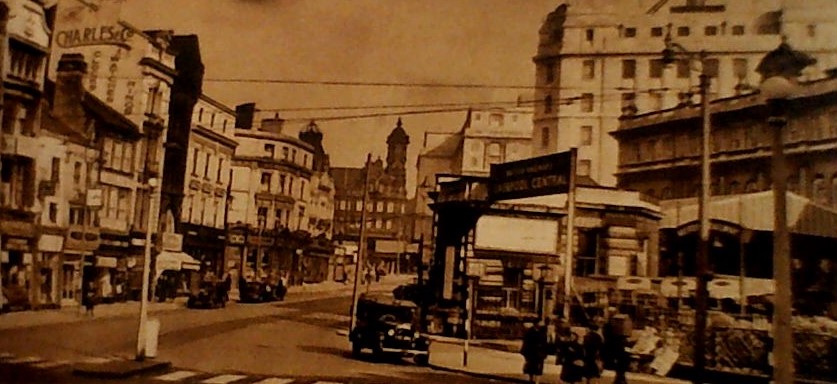Agnes Cowper (1874-1963): Purpose and Audience
In the author’s preface to A Backward Glance on Merseyside, Agnes Cowper provides an explanation for writing an autobiography. She states that she does not intend to write a family saga. She writes:
“Such [family] references have been largely necessary to provide the requisite pegs upon which to hang the story of those incidents of general interest…”

Agnes’s family is a major theme in her memoir and it is through her family members that the events of her life unfold. Perhaps it is not a conscious purpose but by writing in detail about her family, the reader understands that Agnes had a key role in caring for her family and that she dedicated her life to providing care and income for them. In doing so she expresses the restraints of being the eldest daughter in a big family and how this in many senses prevented her from pursuing her own path until much later on in life.
With Liverpool being the place Agnes lived her whole life there is a sense of pride for the city that echoes throughout her autobiography. She describes the city in detail, naming streets, shops and buildings. There is a sense that she wants to preserve the city as she remembered it – her home.
In her memoir, Agnes wants to explain the ‘hardiness and camaraderie’ experienced by the people of Liverpool, more specifically the seafaring families like her own. She recalls numerous sea deaths that effected family friends or neighbours and the hardships they endured as a result. Particular attention is given to the wives of the seaman, when she wrote:
What heroines the women who were so bereaved, proved themselves, for not only were they robbed of partners who, almost without exception, were affectionate, devoted husbands and fathers, but also their only means of support, for at that time there was no form of compensation, nor pensions for widows and orphaned children. If the breadwinner was taken his dependants had to manage as best they could.
As Agnes lost her father to the sea, there is a sense that the events and experiences of her own life reflect the familiar tales of all seafaring families similar to the Cowpers. There is a sense that her life events not only belong to her, but to those also living in Victorian Liverpool when she was growing up. There is no clear statement declaring who Agnes writes her autobiography for. Perhaps it is for those ‘fellow-citizens’ that at the age of seventy-five Agnes turns to a past of big families, seafarers and the City of Liverpool and ‘makes bold to commit them to print’.
Before ending, Agnes reflects that throughout her life goodness and mercy has followed her. On the final page of her autobiography, Agnes notes her hopes for the city after the Second World War has ended:
I am certain that from those sad but honourable heaps of rubble and waste spaces which lie about the centre of our city, and which mark the trail of the beast, a greater and regenerated part of Liverpool will rise consonant with her position among the great mercantile cities of the world.
Resources and Links
- Gagnier, Regenia. ‘Working-Class Autobiography, Subjectivity, and Gender’. Victorian Studies. 30. 3.Indiana: Indiana UP, 1987. pp. 335-363

Leave a Reply